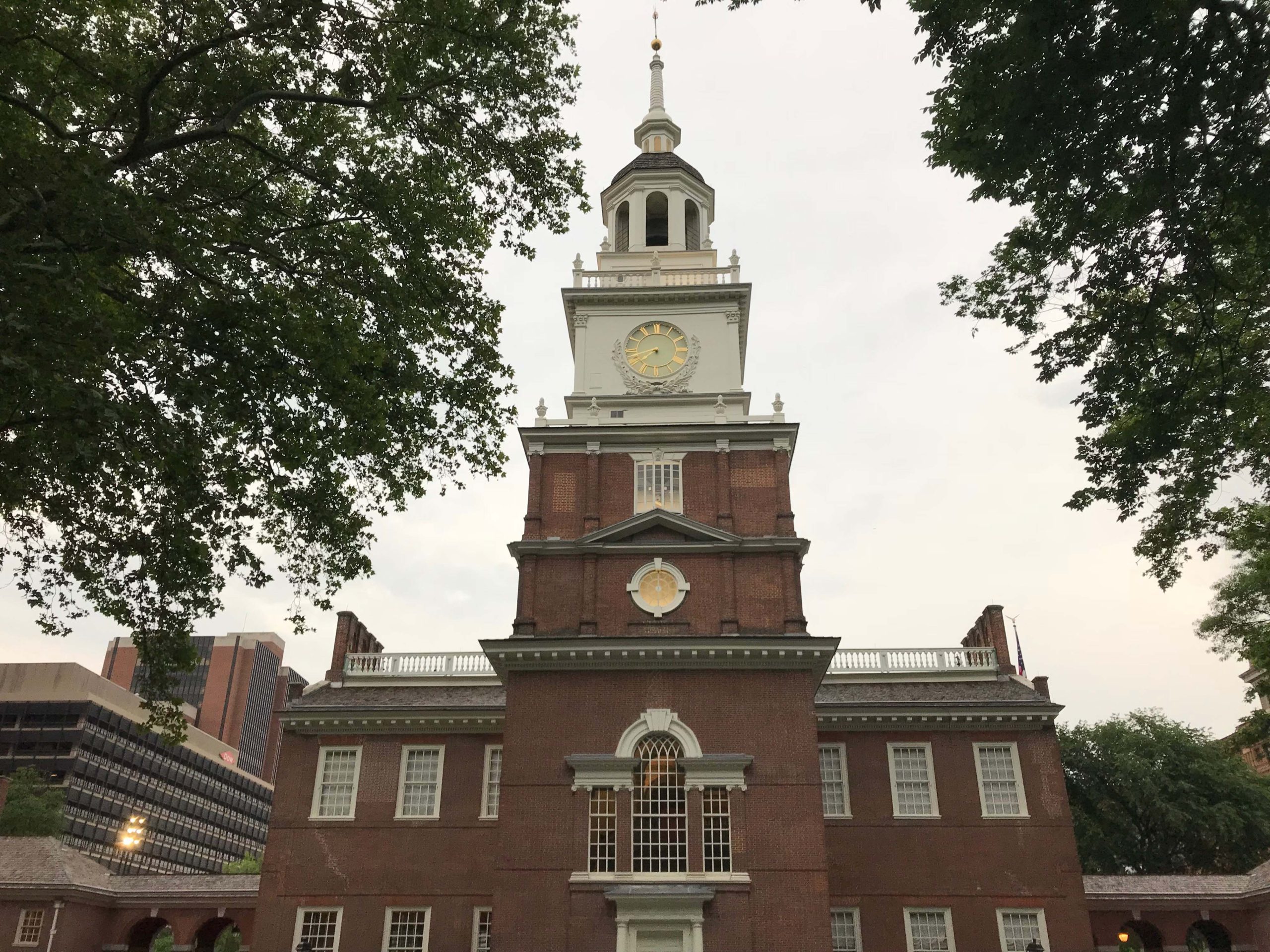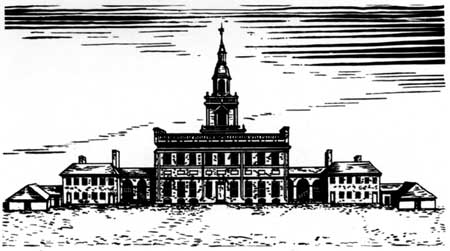
Independence Hall in Philadelphia, also known as the Pennsylvania State House, is famous as the location of the formation of our country. The Declaration of Independence was signed there and the Liberty Bell was rung to alert the people of Philadelphia that the delegation had reached agreement on the declaration. Many people from across the world have visited Independence Hall.. However, only a few were ever allowed to let their cattle graze on the lawn.

Living In The State House
When visiting Philadelphia, we were talking with park rangers and mentioned that some of Rod’s relatives had lived in the State House. Before we could even tell them about the cattle that had grazed on the lawn, they assured us that no one had ever lived on the grounds. However, we informed them that state congressional records indicated that not only did people live in the West Wing of the State House, but cattle had also once grazed on the south lawn.
The Act
I learned about this piece of history when I found a record that stated that on March 29, 1788 the Act to Exonerate Joseph Fry was passed by the state legislature. Joseph was married to Martha Hurrie, who was a sister to Margaret (Hurrie) McGinley, Rod’s 6th great-grandmother. Joseph had replaced his father-in-law William Hurrie, of Liberty Bell fame, as doorkeeper of the State House after William passed away.
All had been well until 1788 when the comptroller-general decided that Joseph should pay the government rent for his family living in the West Wing of the State House. The comptroller-general had also requested Joseph pay fees for the “herbage of the [S]tate [H]ouse yard heretofore consumed by cattle for his use.” Passage of the act freed him of any charges and stated that no rent or charges could be placed upon him for living in the apartment.
The Rationale
One of the arguments against charging Joseph Fry rent was that doorkeepers in the past had not been charged. This implies that William Hurrie and Andrew McNair before him, likely both lived in the State House and may have had cattle on the south lawn as well.
Additionally, the act stated that maintaining a residence in the State House rent-free was “a reasonable allowance for extra services and the care of the [S]tate [H]ouse.” This included caring for the facility during recess of the house.
Moving Out?
By the fall of 1790, it was determined that the the United States’ House of Representatives, which shared Independence Hall with the Pennsylvania Legislature, required more space in the West Wing. This meant that various offices and Joseph Fry’s family would need to be relocated.
The committee researching the options for the impacted offices recommended moving offices to Carpenter Hall and other locations. They found a house on Fifth Street between Market and Chestnut that they felt could be used by Joseph and his family. No statement was made about rent or expenses to be charged to the family.
Staying At The State House
After reviewing the plan, John Beckley of the U.S. House of Representatives reported that after surveying the “apartments,” that he felt it was not necessary for Joseph Fry’s family to move out of the State House. Instead, the family was to move into the space where the Land Office had been residing.
Afterward
Today, the National Park Service includes a statement on the website about Independence Hall indicating that early doorkeepers lived in the building.
Contact me if you would like access to the detailed records for Joseph Fry, William Hurrie, or John McGinley.